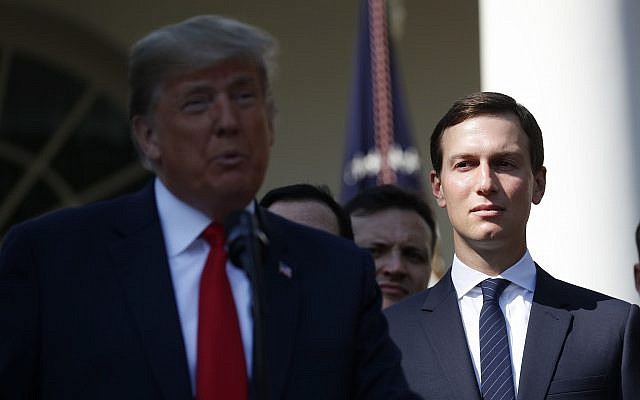News Analysis |
Members of Pakistan’s newly-elected parliament have been sworn in following general elections last month that was marred by allegations of fraud. The lawmakers took the oath at a ceremony in the National Assembly on August 13. An election for the speaker and his deputy is scheduled for later this week, after which the 342-seat assembly will vote on the new prime minister.
The July 25 national elections gave victory to the Pakistan Tehrik-e Insaf (PTI) party, knocking former Prime Minister Nawaz Sharif’s Pakistan Muslim League-Nawaz out from power. Many fresh faces graced the occasion. Pakistan People’s Party (PPP) Chairman Bilawal Bhutto is perhaps the most prominent newcomer. Another is Zar Taj Gul who defeated the powerful feudal Awais Leghari in his own constituency.
Hopefully, these setbacks will start ringing alarm bells for other politicians who have relied far too long on ethnicity and patronage for votes rather than performance. Interestingly, most far-right religious parties too were cast aside by the public at large
In a patriarchal society, Gul has defeated two important clans namely the Legharis and the Khosas in the recent general elections held on July 25. Sadaqat Ali Abbasi of the PTI is also prominent as he defeated the former Prime Minister Shahid Khaqan Abbasi in his own constituency of Murree. He has a degree of Master of Science in Economics which he received from the International Islamic University, Islamabad.
He also has a degree of Master of Philosophy in Economics as well a degree of Master of Science in IT. Before entering politics, he taught Economics to A Levels students in Islamabad and served as the Pakistan Tehreek-e-Insaf head of Khyber Pakhtunkhwa’s education think-tank. Another prominent face is Gul Zafar Khan who has riches to rags story.
Read more: Newly elected MNA’s take oath for third consecutive democratic government
The scion of a prosperous tribal clan, he was cast out due to his political affiliation. Working as a tea seller, he rallied enough support to get elected as an MNA for the first time from the Tribal region. Some of the other new faces in the NA are Maj (R) Tahir Sadiq, Aamer Mehmood Kayani, Khurram Nawaz, Farrukh Altaf, Fawad Chaudhry, Ali Zahid, Mehnaz Akbar, Dr. Nisar Cheema, Zain Qureshi and Shah Zain Bugti.
The PTI did not win enough parliamentary seats to form a government, but the party has acquired enough support to form a coalition, and its leader Imran Khan is expected to become the next head of government. Supporters of the country’s opposition political parties have rallied to protest what they claim were fraud and voting irregularities in the elections, directly blaming without proof the country’s powerful military.
Members of Pakistan’s newly-elected parliament have been sworn in following general elections last month that was marred by allegations of fraud. The lawmakers took the oath at a ceremony in the National Assembly
Notwithstanding the contentions and allegations, Pakistan’s elections were momentous in their own right. Most encouragingly, the elections signaled the potential end of ethnic politics in Pakistan. In the past, voting patterns have largely been determined along ethnic lines with PPP winning throughout rural Sindh, MQM sweeping Karachi and PML-N taking Punjab. The recent elections, however, demonstrated a shift among traditional voting loyalties.
While the PTI lacks a traditional ethnic core base, Pakistanis from all over the country voted for the party based on its anti-corruption stance. Sick with persistent corruption, poor services, and inefficiency, Pakistanis stood against the status-quo to choose a politics of reform. The PTI was even able to break MQM’s incredible stronghold in Karachi by winning 14 out 21 seats.
Read more: Governance challenges the new government faces
Furthermore, many of Pakistani politics heavyweights suffered major defeats. Maulana Fazal-ur-Rehman and Siraj-ul-Haq, the leaders of Muttahida Majlis Amal failed to win a single seat from their respective hometowns. Similarly, former Interior Minister, Chaudhary Nisar failed to win his seat from Rawalpindi for the first time since 1985. Mustafa Kemal, Yousuf Raza Gillani, Shahid Khaqan Abbasi and Abid Sher Ali were other seasoned politicians who the people decided to do against.
Read more: Seven decades of Pakistan
Hopefully, these setbacks will start ringing alarm bells for other politicians who have relied far too long on ethnicity and patronage for votes rather than performance. Interestingly, most far-right religious parties too were cast aside by the public at large. MMA, Ahle Sunnat Wal Jammat, and Milli Muslim League fared poorly on the provincial and national levels. However, an ultra-conservative religious party, Tehreek-e-Labbaik Pakistan (TLP), was able to win 2.1 million votes which have raised some concerns.














